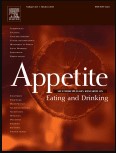Hybridity and change in cooking skills in everyday life: Conceptual contributions from a study of cooking with meal-box schemes
Analysis of cooking skills in society needs concepts that are built on empirical knowledge and careful analysis if the academically unsupported assumptions that tend to characterize popular discourse about cooking skills are to be avoided.
 Professor Bente Halkier contributed to the journal Appetite with the article 'Hybridity and change in cooking skills in everyday life: Conceptual contributions from a study of cooking with meal-box schemes'.
Professor Bente Halkier contributed to the journal Appetite with the article 'Hybridity and change in cooking skills in everyday life: Conceptual contributions from a study of cooking with meal-box schemes'.
In a sizeable amount of public health and nutrition food research there seems to be an assumption that there has been a decline in cooking and cooking skills alongside an increase in the consumption of convenience-based meals. However, existing empirical sociological research on food in everyday life does not tend to support this picture. Instead, cooking and cooking skills in current everyday life are characterized by hybridity and change, rather than mere decline. Thus, it is necessary to draw upon an understanding of cooking skills that takes this empirically based understanding of cooking skills into account.
In the article, four elements of skillfulness in cooking are suggested that can improve the analytical understanding of cooking skills in all kinds of food research. The four suggested cooking skills elements are the following:
- Balancing rules and improvisation
- Handling planning and organizing flexibly
- Assembling meals from different sources
- Handling normative food issues.
The analysis and conceptual suggestions of the article is based upon an empirical qualitative study of use of meal-box schemes in Denmark, and is informed by a practice theoretical perspective.
The article is prepublished online and available at 'Science Direct.
